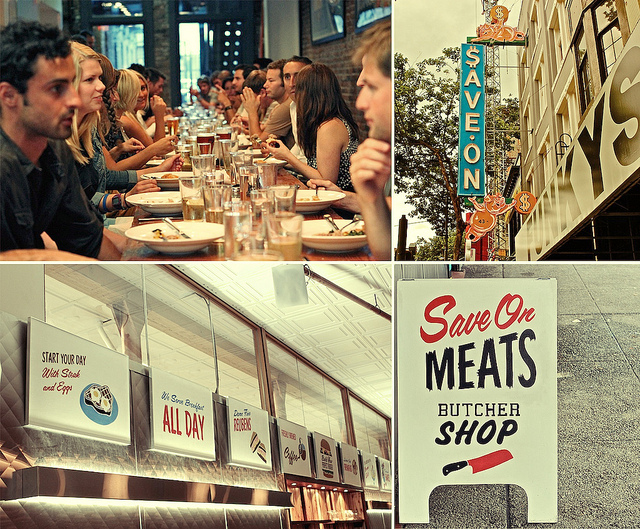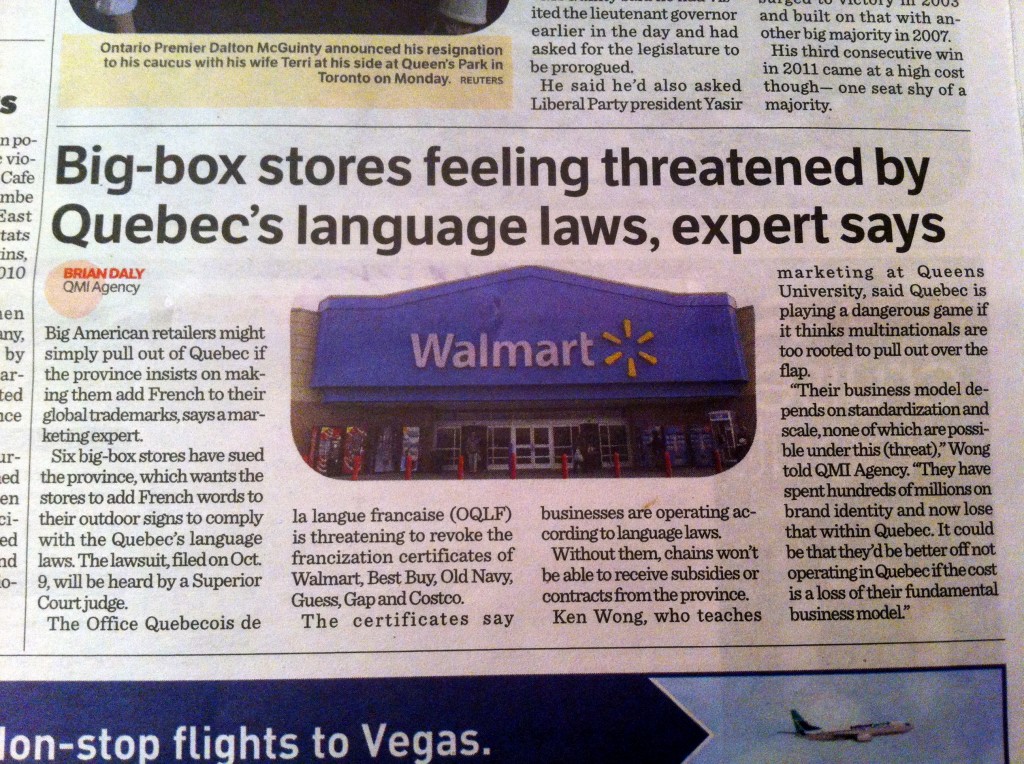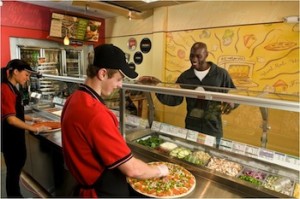After having read Chloe’s blog post in regards to Tim Hortons hiring people with disabilities, I immediately recalled Save On Meats, a local restaurant whose owner has been regarded as a social entrepreneur for his commitment in Vancouver’s Eastside community. I think it is important to recognize the places that originally began the effort that Tim Hortons is now demonstrating. It is interesting to see how social entrepreneurs, like Mark Brand, start movements that are now being seen among larger firms like Tim Hortons. Mark started something that he calls “rehabilitative employment” where he hires people from the Downtown Eastside and gives them simple jobs such as window cleaning, dishwashing and sweeping, in hopes of helping them to overcome their difficult lifestyles. Many of the people living in this poverty are there because of disability, drug or alcohol abuse, etc. Mark’s doors are open for anyone in any situation, as long as they are willing to improve their condition. Social entrepreneurs, like Mark, are sparking a change not only within their target communities but also in society as whole. Because of this, companies have taken it upon themselves to give a chance to disabled workers, realizing that they have been overlooking a large portion of the labour force, and even seeing it as a way to market themselves.
Sources:
http://www.vancouversun.com/health/Hiring+those+with+disabilities+easier+than+think+Hortons+franchise+owner/7072413/story.html
http://ubyssey.ca/culture/dtes-eats-975/






